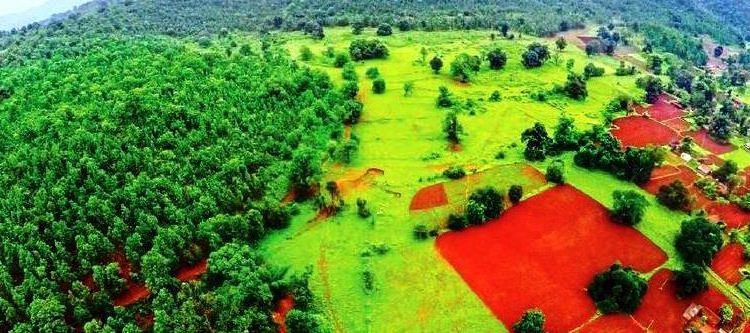Keonjhar: About nine lakh Sal trees in the jungle near Gandhalpada village of Guali panchayat under Joda block in Keonjhar district are going to be felled as the jungle area has been identified for iron ore excavation.
One of the nine green field mineral blocks, this area has the highest deposit of 314.37 MT iron ores underneath it. If operation starts, 241.558 hectares of area will be excavated. Of the total mines area, Sal jungle stands on 181.461 hectares of land.
This area is coming under Joda mining area and is roughly 1 km away from Sundargarh border. While seven new mines are located in this area, the mining of iron ores is getting delayed due to vehement protest by local residents.
Meanwhile, the government is learnt to be mulling on a fresh auction. This month these mines will reportedly go under the hammer.
Once these mines are leased out, the mining activities will have a detrimental effect on the jungle.
According to some environmentalists, the mines will not only see the Sal trees being felled but also cause extensive damage to the flora and fauna. This apart, the forest dwellers who are living on the minor forest produces will also lose their age-old source of earning.
The forest department sources said the trees that have a girth of 30 cm are considered as trees. Others with less than 30 cm girth are not taken into account.
Environmentalist and president, Keonjhar Citizen Forum, Kiran Shankar Sahu said a tree takes a minimum of 60 years to get a girth of 30cm. So these nine lakh trees are more than 60 years old. If the mines are started after felling the trees, what will happen to the habitat of elephants, he asked, adding that this will only increase human-elephants conflicts.
“The auction of the mines was stalled due to people’s objection. The proposal for fresh auction is unfortunate,” he added.
According to local residents way more than the estimated nine lakh trees will be axed because smaller tress are not being taken into consideration.
“Elephants, bears and other animals and birds will sure to lose their habitats. The man-animal conflicts will increase manifold. From these proposed mines, while the government and leaseholder companies will get immense benefits, local people and forest dwellers will get nothing but air pollution,” they alleged.
Every day on an average 5,000 trucks ply in Joda mining area. Similarly, about 50MT iron ores are being transported from this area. With so many trucks plying, people here are being constantly subjected to air and water pollution. This apart, the roads are also in a deplorable condition and riddled with craters and potholes. Moreover, people are also suffering from various respiratory diseases due to air pollution.
Sources say that about 10,451.39 hectares of forest land were lost to the mining activities. But no compensatory plantation has so far been carried out. The district has 110 mines, which is 31.28 per cent of the total iron mines in the state.
The environmentalists in the district have a common observance that after some years pure oxygen will be a rarity in the area.
When contacted, joint director of mines, Joda mining circle, Salil Kumar Behera said there are two proposals for mining in that area. After auction, an estimation will be carried out and only then it can be said how the forested area will get affected.
Keonjhar divisional forest officer Santosh Joshi said after getting the lease of mines and before carrying out any mining activities, permission from the forest department is most. Then only the department will start counting how many trees are to be felled and estimating what will be the possible adverse impact on the jungle. It is too early to say how many trees are going to be axed due to the proposed mines.
Similarly, district collector, Ashish Thakare pleaded his ignorance saying he has no information about the extent of damage the new mines will cause to the jungle.
PNN






































